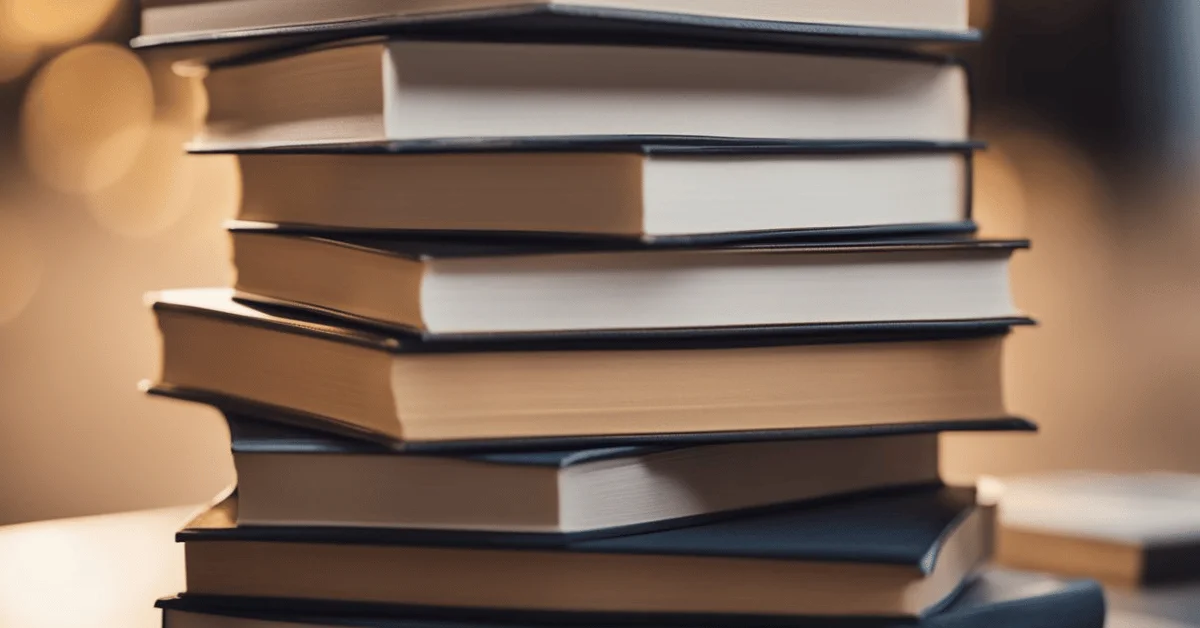In recent years, minimalism has gained considerable attention as a way to simplify life and focus on what truly matters.
This philosophy encourages individuals to strip away the non-essential, whether it be possessions, activities, or thoughts, to promote clarity, purpose, and contentment. The surge in its popularity has led to a proliferation of literature on the topic; however, among the myriad of publications, certain titles stand out for their insight, practical advice, and the transformative potential they offer to readers.
Understanding the minimalist lifestyle entails more than just decluttering your physical space—it’s about adopting a new mindset. The best books on minimalism offer more than mere guidelines for tidying up. They delve into the ethos of minimalism, explore its psychological benefits, and provide frameworks for individuals to implement its principles in various aspects of life.
From personal anecdotes of prominent minimalists to comprehensive guides on changing consumption habits, these works have the power to influence and reshape our approach to living.
Key Takeaways
- Minimalism promotes clarity and contentment by focusing on what’s essential.
- Books on minimalism guide readers through mindset shifts and practical lifestyle changes.
- The best books on minimalism provide a diverse exploration from foundational concepts to real-life applications.
Understanding Minimalism
Before delving into our list of the best books on minimalism, it’s crucial to grasp its core principles and evolution. We aim to shed light on how minimalism has developed over time and its significance in today’s society.
Historical Roots of Minimalism
Minimalism has philosophical and religious roots stretching back millennia, with connections to Zen Buddhism and Stoic philosophy. These ancient practices centered around living with less to achieve a purer form of happiness and spiritual clarity. We can trace the formal emergence of minimalism to the mid-20th century, where it began as an art movement aiming to strip away the superfluous elements of design and focus on the essential parts of an aesthetic experience.
Key Philosophies:
- Zen Buddhism: Emphasizes simplicity and mindfulness.
- Stoicism: Advocates for self-control and the importance of focusing on what one can change.
Minimalism in Modern Times
The application of minimalism in modern times extends beyond art and philosophy into a lifestyle choice. People adopt minimalism to declutter not only their physical spaces but also their mental ones, seeking a clearer focus and freedom from the excesses of modern consumption. This shift often results in a more intentional approach to living, where every possession and action aligns with one’s most essential values and goals.
Lifestyle Components:
- Decluttering of physical space.
- Simplification of tasks and commitments.
- Intentional living and mindfulness.
Minimalism vs. Consumerism
Some of the best books on minimalism stand in stark contrast to consumerism, which encourages the accumulation of goods and equates possessions with success. In our view, the minimalist approach is about finding contentment and quality of life through less, rather than more. Consumerism, on the other hand, often leads to a perpetual cycle of buying and discarding, which minimalism actively seeks to counteract by promoting intentionality and sustainability.
Comparative Table:
| Minimalism | Consumerism |
|---|---|
| Values experiences over possessions. | Values possessions as a measure of success. |
| Promotes sustainability and mindful consumption. | Encourages continuous acquisition of new items. |
| Focuses on quality over quantity. | Often results in excess and waste. |
In essence, minimalism allows us to break free from the shackles of consumer culture and rediscover what truly enriches our lives.
Foundational Theories
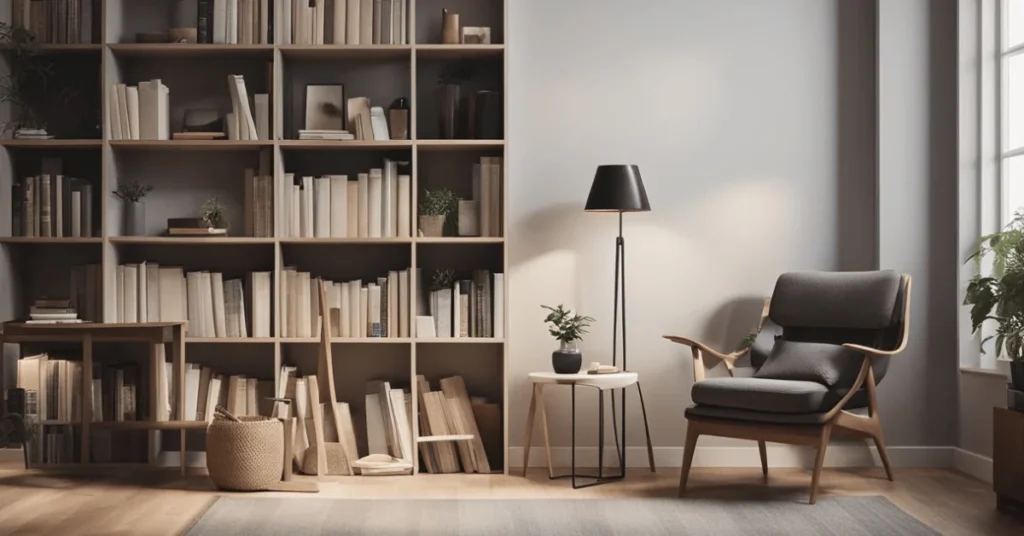
In exploring the foundations of minimalism, we examine core philosophies and aesthetics that have shaped the minimalist movement. These theories provide context as to how minimalism has evolved into a lifestyle and design principle centered around the art of less.
Principles of Essentialism
Essentialism is at the heart of minimalism, positing that by focusing on the necessary elements, we can improve our lives. Essentialism encourages us to discern what is absolutely vital and to eliminate the rest, thus embracing the philosophy that less is more. This approach helps us prioritize our values and strip away the superfluous, dedicating our resources to what is truly essential.
- Key Tenet: Prioritization of what is most important
- Impact: Streamlining decisions and possessions for a focused life
Japanese Art and Aesthetics
Japanese minimalism plays a pivotal role in the minimalist philosophy, integrating aesthetics with function. The traditional Japanese aesthetic values simplicity, naturalness, and profundity. Wabi-sabi, for example, is a concept that finds beauty in imperfection and transience, celebrating the flawed and ephemeral nature of objects and experiences.
- Wabi-Sabi: Embracing imperfection in beauty and life
- Ma: Valuing negative space to enhance the overall aesthetic
The Zen Influence
Zen philosophy permeates minimalism with its emphasis on simplicity and mindfulness. Zen principles encourage us to clear our surroundings and minds, creating an environment conducive to peace and contemplation. By incorporating the Zen practice of mindfulness, we promote a harmonious relationship between our living spaces and our mental clarity.
- Simplicity: Creating space for reflection and serenity
- Mindfulness: Conscious living and appreciation of the present moment
Practical Application – Your Best Books On Minimalism
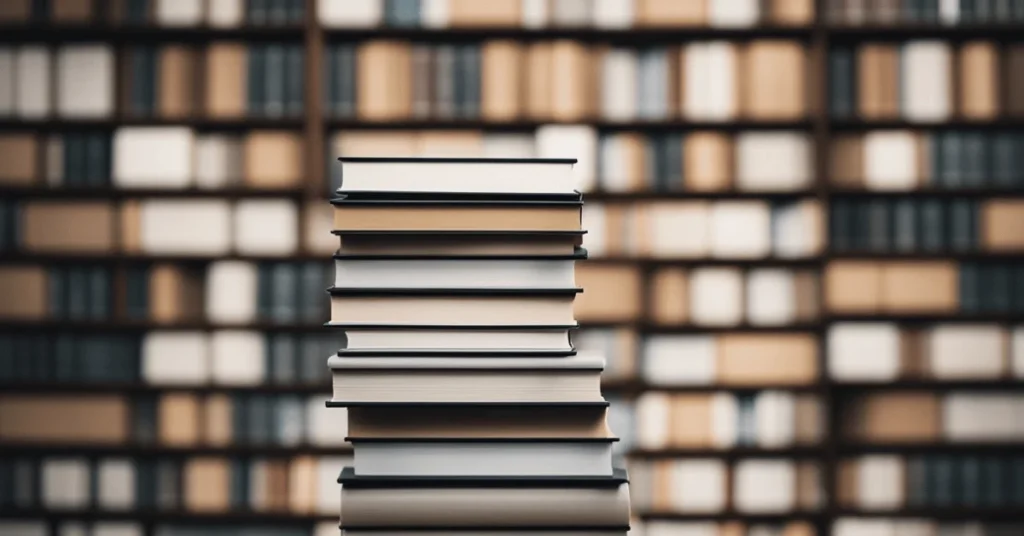
We’ll now explore how minimalism can be directly applied to various aspects of our lives, focusing on tangible results through decluttering, simplifying our finances, and improving our overall well-being.
Decluttering Your Space
We all start with decluttering our physical environment which is often the first step towards a minimalist lifestyle. By removing excess items, we create a more spacious and stress-free home.
- Assess each item: Ask whether it serves a purpose or sparks joy.
- Categorize: Sort items into keep, donate, sell, or discard piles.
- Organize: Use clear storage solutions to maintain a tidy space.
Simplifying Finances
Our financial health can greatly benefit from minimalist principles. Stripping back unnecessary expenses can lead to greater financial freedom and reduce stress.
- Track Spending: Create a budget to monitor where our money goes.
- Cut Back: Identify and eliminate non-essential expenditures.
Lifestyle and Well-being
Minimalism is more than cleaning—it’s about cultivating health and intentionality in our daily lives. Simplifying routines and commitments can minimize feeling overwhelmed and enhance our overall health.
- Streamline Routines: Prioritize tasks to focus on quality, not quantity.
- Digital Declutter: Limit digital distractions to increase productivity and improve mental health.
Prominent Minimalists Within the Best Books On Minimalism
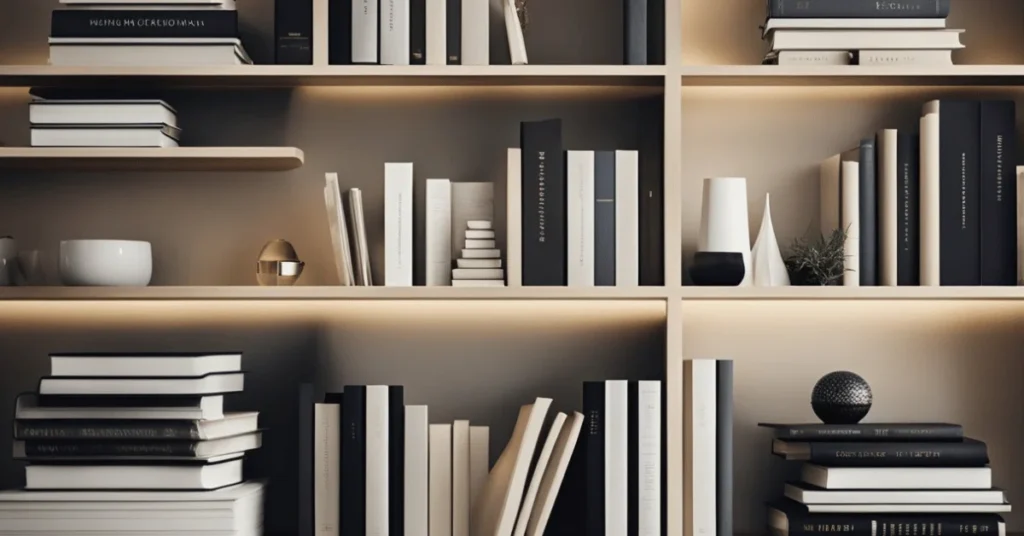
In this section, we’ll introduce you to some of the most influential figures in the world of minimalism. Each has developed unique strategies and philosophies that resonate with a wide audience, offering them paths to declutter not just their spaces, but their lives. Some of the best books on minimalism are:
Marie Kondo’s Konmari Method
Marie Kondo revolutionized tidying with her Konmari Method, encapsulated in her best-selling book, “The Life-Changing Magic of Tidying Up.” It is decently considered one of the best books on minimalism. The method is straightforward—keep only what “sparks joy” and discard the rest with gratitude. Kondo’s approach goes beyond organizing spaces; it is aimed at cultivating a mindful and reflective lifestyle.
Fumio Sasaki’s Approach
Fumio Sasaki provides a more extreme perspective on minimalism. His book, “Goodbye, Things,” chronicles his own journey to minimalism and proposes that less is exponentially more. Sasaki’s minimalist lifestyle extends to owning fewer items, which he believes leads to greater personal freedom and happiness.
Joshua Becker’s Advocacy
Joshua Becker is another key advocate and represents one of the best books on minimalism. Through his website and books like “The More of Less,” Becker encourages us to find more life by owning less. As a family man, he brings a practical approach to minimalism, promoting it as achievable for everyone, not just single individuals or those without children.
Within the minimalist community, Joshua Fields Millburn and Ryan Nicodemus, also known as The Minimalists, spread the philosophy that living with less helps to prioritize life’s most important aspects—health, relationships, passions, growth, and contributions. Their documentary, best books on minimalism, and podcasts have been instrumental in bringing minimalism to the forefront of popular culture.
Notably, Cal Newport approaches as one of the best books on minimalism from a digital angle. His concept of Digital Minimalism advocates for the intentional use of technology, not to banish it, but to support a person’s goals and values. This approach aligns with the broader minimalist philosophy of cutting out the unnecessary to focus on what truly adds value to one’s life.
Best Books on Minimalism
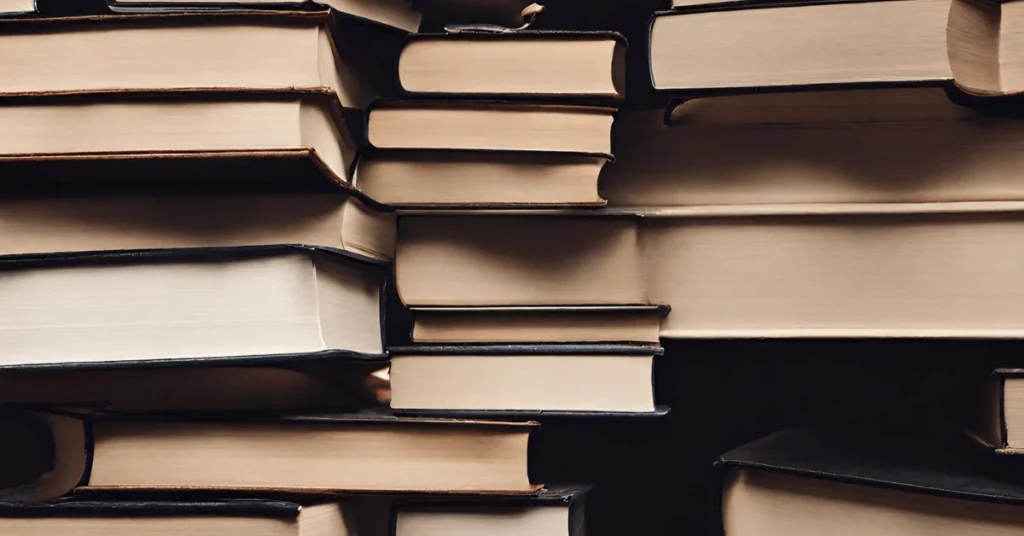
In exploring the philosophy of minimalism, we find a treasure trove of literature that guides us on how to simplify our lives and focus on what’s truly important. From decluttering physical spaces to fostering mental clarity, these books offer a range of perspectives on embracing a minimalist lifestyle.
Essential Minimalism Books – Best Books on Minimalism:
- The Life-Changing Magic of Tidying Up by Marie Kondo
It’s a definitive guide that has sparked a tidying revolution, emphasizing the Japanese art of decluttering and organizing. - Essentialism: The Disciplined Pursuit of Less by Greg McKeown
McKeown’s work details the practice of seeking less but better, encouraging us to focus on what’s essential in our lives. - The Joy of Less, A Minimalist Living Guide by Francine Jay
Jay provides practical advice on how to pare down possessions and simplify life to its essence for greater joy. - Everything That Remains by Joshua Fields Millburn & Ryan Nicodemus
This memoir by “The Minimalists” reflects on their personal journey towards a meaningful life with fewer material possessions.
Minimalism for Different Aspects of Life – Best Books on Minimalism:
- Digital Minimalism: Choosing a Focused Life in a Noisy World by Cal Newport
Newport challenges us to reassess our relationship with technology, advocating for more intentional and less disruptive digital habits. - The More of Less: Finding the Life You Want Under Everything You Own by Joshua Becker
Becker’s book inspires us to declutter not just our spaces but our mindset, freeing ourselves to pursue our true passions. - Sustainable Minimalism: Embrace Zero Waste, Build Sustainability Habits That Last by Stephanie Marie Seferian
Seferian encourages us to minimize our ecological footprint, combining minimalist principles with sustainable living.
Addressing Specific Challenges – Best Books on Minimalism:
- The Gentle Art of Swedish Death Cleaning: How to Free Yourself and Your Family from a Lifetime of Clutter by Margareta Magnusson
This book introduces a sensitive approach to decluttering that focuses on leaving a graceful legacy. - It’s All Too Much: An Easy Plan for Living a Richer Life with Less Stuff by Peter Walsh
Walsh lays out strategies to conquer clutter and reclaim control of your space, ultimately enhancing your quality of life. - Decluttering at the Speed of Life: Winning Your Never-Ending Battle with Stuff by Dana K. White
White offers a realistic and humorous take on decluttering for those who feel overwhelmed by their possessions.
Expanding Beyond Possessions
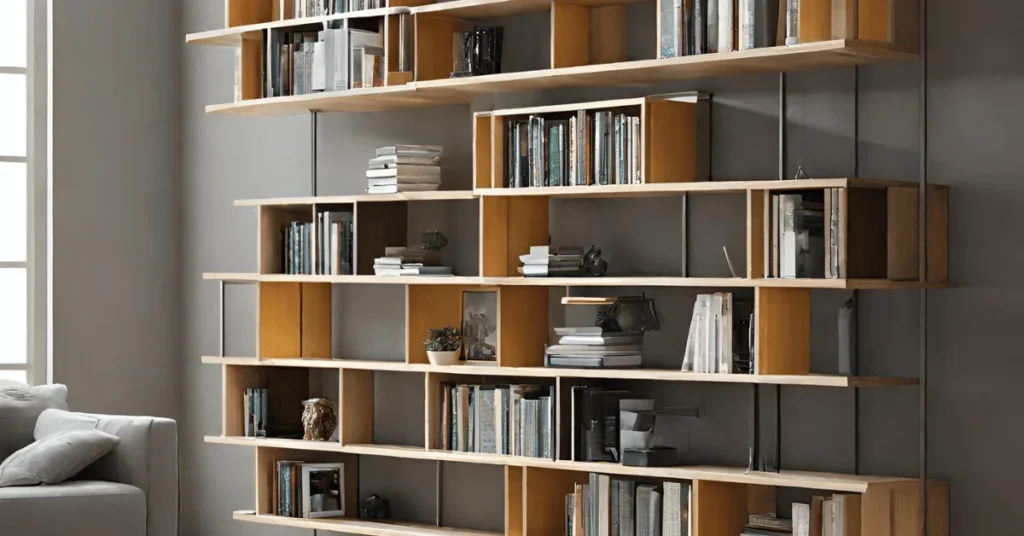
In embracing minimalism, we find that it extends past the mere reduction of physical clutter, touching upon the very essence of our social interactions, digital presence, and environmental footprint.
Relationships and Personal Growth
We often discover that the principles of minimalism can profoundly affect personal growth and relationships. By prioritizing quality over quantity, we can cultivate stronger connections with fewer people, focusing on those who help us lead a meaningful life. It’s about making room for growth by shedding relationships that do not add value to our lives.
- Invest in Growth: Foster relationships that encourage personal growth.
- Joy of Missing Out (JOMO): Embrace the joy of missing out to spend time with loved ones.
Minimalism in the Digital Realm
Our digital lives are increasingly cluttered. We advocate for a conscious approach to how we interact with technology, making intentional choices about our digital consumption. Minimalism here means engaging with platforms that align with our passions and maintaining a focused life amid a noisy world.
- Social Media Consumption: Limit time on social media to reduce noise.
- Digital Footprint: Opt for technology that supports a simplified, focused lifestyle.
Community and Environmental Concerns
Several of the best books on minimalism intersect with sustainability as we become more aware of our environmental impact. Practicing sustainable minimalism and aspiring to a zero-waste life are methods through which we can support our community and play a role in global conservation efforts.
- Sustainable Living: Adopt habits that support sustainable minimalism.
- Zero-Waste Goals: Strive for waste reduction to benefit our community and the planet.
Adopting a Minimalist Lifestyle
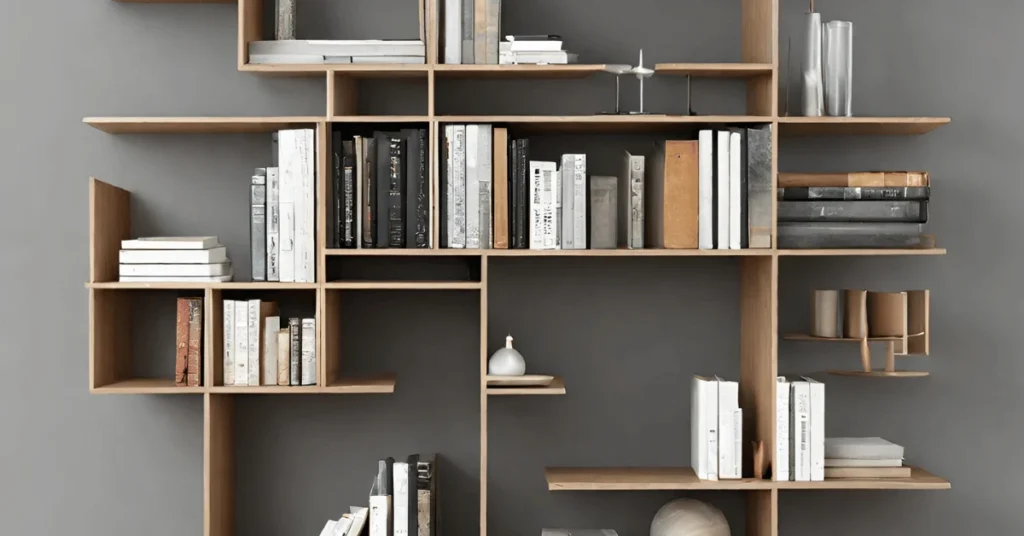
Embracing a minimalist lifestyle offers us a clear path to personal growth and contentment by focusing on values and priorities over material possessions. This lifestyle can lead to living more deliberately with fewer debts and distractions.
Starting Your Minimalist Journey
We begin by assessing our current possessions and identifying what is truly essential. The Swedish Death Cleaning method can be a helpful approach, encouraging us to consider what we want to leave behind. The practice is not as morbid as it sounds; it actually aligns with minimalist principles by guiding us to keep only what has value and meaning. Start by making a list:
- Essentials needed for daily life
- Items with emotional significance
- Things to discard, donate, or sell
Being honest with ourselves about what brings joy and utility into our lives is crucial. Once we have this list, we can proceed with decluttering our space, keeping simplicity at the heart of our decisions.
Maintaining Minimalist Practices
Once the initial decluttering has taken place, sustaining our minimalist living requires ongoing effort and mindful consumption. This means regularly evaluating our possessions and asking whether they serve our values and enhance our lives. To keep track, we can use a living guide—a simple set of rules for acquisitions:
- Necessity: Is the item necessary for our daily life?
- Value: Does it add value or merely take up space?
- Function: Will it serve a specific, meaningful purpose?
- Longevity: Is it durable and long-lasting, or will it contribute to waste?
Adopting simplicity parenting can also help us impart these values to our children, teaching them to appreciate experiences over possessions, thereby helping them develop into content individuals with a clear sense of what matters.
Minimalism as a Lifelong Commitment
Minimalism is not a phase but a sustained way of life that continually brings us closer to our true selves and goals. Embracing essentialism, we prioritize activities and relationships that nurture our personal growth and reject those that detract from it. We should regularly reflect on and adjust our:
- Priorities: Ensuring they align with our evolving goals.
- Contentment: Recognizing the fullness of the moment.
- Personality: Allowing our true selves to flourish without the burden of excess.
As we age, our commitment to minimalism can help alleviate the stress of managing an excess of possessions, thus contributing to a lifestyle that is both liberating and fulfilling.
Influence and Impact
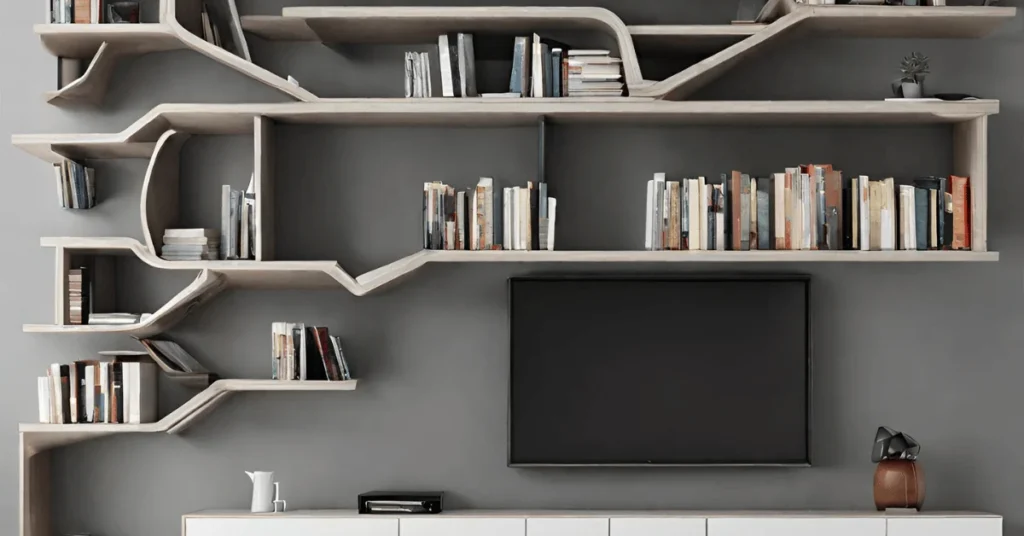
In exploring the best books on minimalism, we recognize the profound effects these works have on personal well-being, culture, and the ongoing development of the minimalist movement.
Minimalism on Personal Well-being
The best books on minimalism often highlight Japanese minimalism, linking it to heightened contentment and personal well-being. In texts such as “Goodbye, Things” by Fumio Sasaki, readers discover the art of letting go and see evidence that decreasing material accumulation can lead to a clearer mind and reduction in stress. The principle of generosity, a core aspect of minimalism, is shown to enhance social connections and overall life satisfaction.
- Stress levels: Lower
- Clarity of mind: Improved
- Social connections: Strengthened
Cultural Impact
The minimalist movement has challenged the pervasive influence of materialism in various cultures. Book recommendations among the best books on minimalism includes “The Life-Changing Magic of Tidying Up” by Marie Kondo have transcended race and nationality, sparking global interest and adoption of minimalist principles. This cultural shift has seen a rising preference for quality over quantity, influencing consumer behavior and lifestyle choices across multiple demographics.
- Global interest: Increased
- Consumer behavior: Changed
The Future of the Minimalism Movement
Looking ahead, we anticipate that the minimalism movement will continue to evolve, with the best books on minimalism playing a pivotal role in shaping its trajectory. These texts not only encourage individual lifestyle changes but also provoke thought on societal levels about sustainable living and conscious consumption. As we venture further into our century, the values of minimalism are likely to be integral in addressing stuff-accumulation habits and promoting a collective ethos of generosity and mindful consumption.
- Sustainable living: Advocated
- Conscious consumption: Promoted
Frequently Asked Questions
What are the essential reads for beginners interested in minimalism and simplicity?
For those just starting on their journey towards minimalism, some of the best books of minimalism are: “The Life-Changing Magic of Tidying Up” by Marie Kondo and “The Joy of Less” by Francine Jay are considered essential reads. They offer practical advice and philosophies for simplifying one’s life.
Which minimalist authors or books from Japan have significantly impacted the minimalist movement?
Fumio Sasaki’s “Goodbye, Things” and Marie Kondo’s “The Life-Changing Magic of Tidying Up” have been pivotal. These Japanese authors provide unique perspectives on minimalism that have influenced people globally.
Can you recommend top-rated books about decluttering that align with minimalist principles?
“Essentialism: The Disciplined Pursuit of Less” by Greg McKeown, and “The Life-Changing Magic of Tidying Up” by Marie Kondo are highly recommended for their approach to decluttering and choosing to focus on what is truly essential.
Is there a universally acclaimed book on minimalism considered a must-read?
While not universally acclaimed, “The Minimalist Way” by Erica Layne is a must-read for its comprehensive guide to a minimalist and decently finds that garners praise for its applicable and sustainable strategies. Its is on our list of the Best Books on Minimalism in 2024.
How can individuals with ADHD benefit from adopting minimalism according to recent publications?
Recent publications suggest that minimalism can reduce distractions and help individuals with ADHD create a calming environment, which supports better focus. Best Books on Minimalism related to ADHD include “Organizing Solutions for People with ADHD” by Susan Pinsky. It provides strategies tailored to the needs of those with ADHD.
What are some challenges people face when transitioning to a minimalist lifestyle?
People often struggle with letting go of possessions due to emotional attachments or the fear of needing items in the future. Best Books on Minimalism in 2024 include for example “The More of Less” by Joshua Becker. It offers guidance on overcoming these obstacles to embrace minimalism.
We’ve explored the realm of minimalist literature and highlighted some of the best books on minimalism.
Now, it’s your turn to share your favorites or any hidden gems you’ve discovered.
Join the discussion in the comments below and let’s keep the conversation on minimalism alive!

